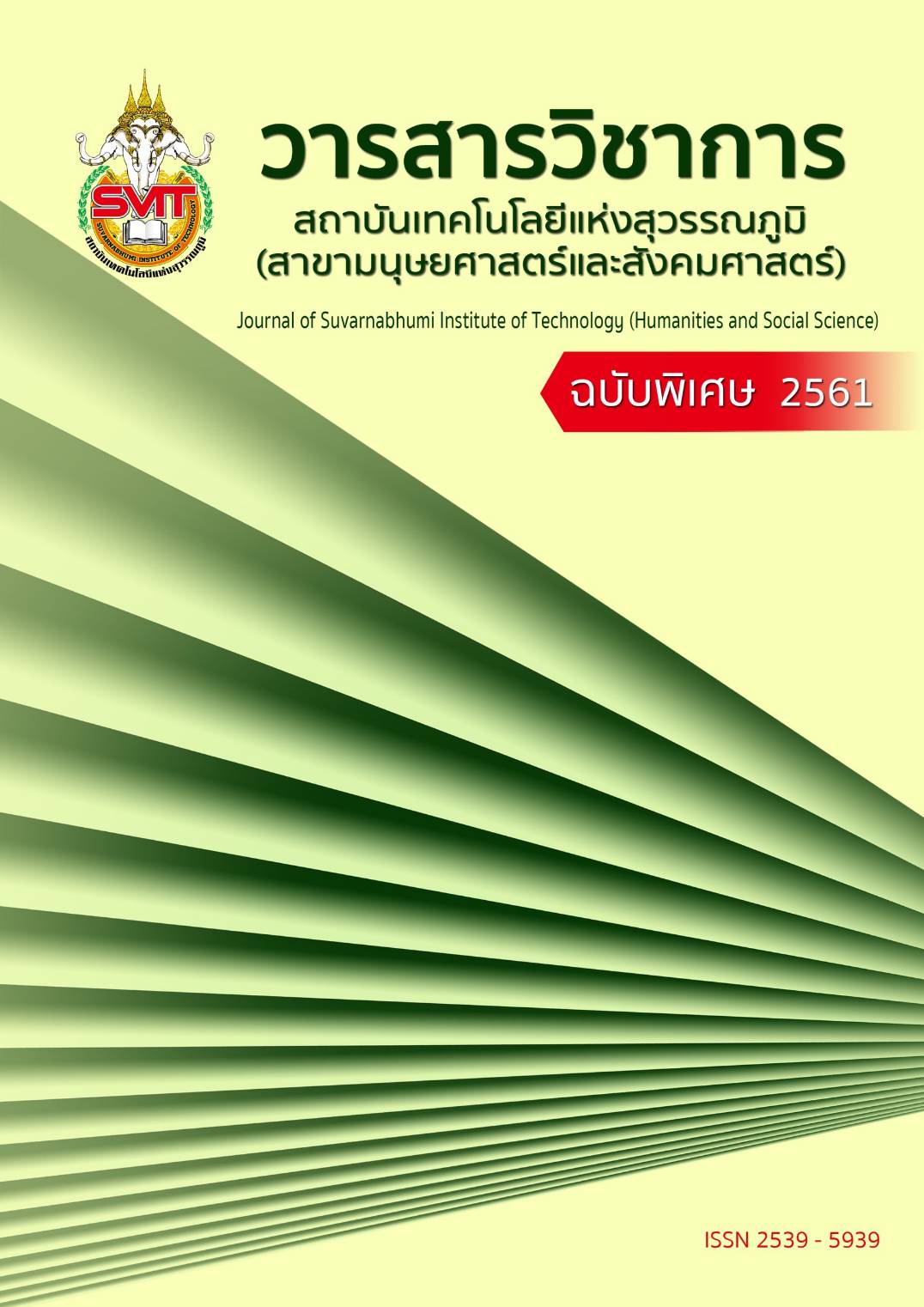STRENGTHENING THE DEMCORACY OF KING RAMA 9th
Keywords:
Constitutional Monarchy, Democracy of King Rama 9thAbstract
The objective of this research is to study the impact of characteristics of the royal works, speech, and guidance of the King Rama 9th on the sustainability and strengthening of the democracy in Thailand via the qualitative research.
The results of this research found that the democracy regime within the ruling of the King Rama 9th was not ruling by law but by heart (The King reigns but not rule). His majesty the king rama 9th strictly adhered to the democracy. He emphasized on working to improve the Thais’ quality of lives as mentioned in the first royal command “We shall reign in righteousness for the benefits and happiness of Siamese people”. The royal works had turned the Thai monarchy into the main and important institutional in sustaining and strengthening the democracy in Thailand by the practice of the human resource development. Such royal doings have bettered Thais’ quality of lives, and raised the awareness in political participation. Thais also learned to live amongst discrepancies and focus on the collective, rather than personal, interest as the practice of the democracy.
References
เจษฎา พรไชยา. (2546). พระราชอำนาจของพระมหากษัตริย์ของประเทศไทยกับประเทศอังกฤษ. กรุงเทพฯ. สำนักพิมพ์แห่งจุฬาลงกรณ์มหาวิทยาลัย.
ไชยันต์ ไชยพร. (2559). ปฐมบรมพระมหากษัตริย์ภายใต้รัฐธรรมนูญ (1). ค้นเมื่อ 1 ธันวาคม 2559, จาก http://www.bangkokbiznews.com/blog/detail/
ไชยันต์ ไชยพร. (2560). ประเพณีการปกครองระบอบประชาธิปไตยอันมีพระมหากษัตริย์ทรงเป็นประมุข: บทวิเคราะห์ มาตรา 7 จากรัฐธรรมนูญ 2540 ถึงรัฐธรรมนูญฉบับปัจจุบัน. กรุงเทพฯ: สถาบันพระปกเกล้า.
ไชยวัฒน์ ค้ำชู และนิธิ เนื่องจำนง. (2559). การเมืองเปรียบเทียบทฤษฎี แนวคิด และกรณีศึกษา. กรุงเทพฯ. สำนักพิมพ์แห่งจุฬาลงกรณ์มหาวิทยาลัย.
ธุลีประบาท (นามแฝง). (2559). ธรรมะแห่งพระราชา (พิมพ์ครั้งที่ 2). กรุงเทพฯ: แสงดาว.
ณัฐพล ใจจริง. (2556). ขอฝันใฝ่ในฝันอันเหลือเชื่อ: ความเคลื่อนไหวของขบวนการปฏิปักษ์ปฏิวัติสยาม (พ.ศ. 2475-2500). นนทบุรี: ฟ้าเดียวกัน.
นครินทร์ เมฆไตรรัตน์. (2549). กรณี ร.7 ทรงสละราชสมบัติ: การตีความและสานต่อความหมายทางการเมือง. กรุงเทพฯ: โครงการจัดพิมพ์คบไฟ.
ปรีชา หงษ์ไกรเลิศ. (2557). พระมหากษัตริย์กับดุลยภาพแห่งอำนาจในระบบโครงสร้างอำนาจรัฐไทย ใน เอกสารประกอบการประชุมวิชาการสถาบันพระปกเกล้า ครั้งที่ 16 ประจำปี 2557 สถาบันพระปกเกล้า.
วัชรา ไชยสาร. (2549). พระมหากษัตริย์นักประชาธิปไตย. วารสารสถาบันพระปกเกล้า, 4(2): 1-23.
วิชิตวงศ์ ณ ป้อมเพชร. (2559). 80 ปีของสังคมไทย ภายใต้พระบารมีคุ้มเกล้าฯ พุทธศักราช 2470-2550. กรุงเทพฯ: แสงดาว.
ส. ศิวรักษ์. (2559). สถาบันพระมหากษัตริย์กับอนาคตของประเทศไทย (พิมพ์ครั้งที่ 3).กรุงเทพฯ. ธนาเพรส.
สมบัติ ธำรงธัญวงศ์. (2555). การเมือง: แนวความคิดและการพัฒนา (พิมพ์ครั้งที่ 20). กรุงเทพมหานคร. สำนักพิมพ์เสมาธรรม.
สันติสุข โสภณสิริ. (2555). สถาบันพระมหากษัตริย์กับประชาธิปไตย. กรุงเทพฯ. มูลนิธิเด็ก.
สมบูรณ์ สุขสำราญ. (2527). พุทธศาสนากับการเปลี่ยนแปลงทางการเมืองและสังคม. กรุงเทพฯ: จุฬาลงกรณ์มหาวิทยาลัย.
เอนก เหล่าธรรมทัศน์. (2550). สองนคราประชาธิปไตย.กรุงเทพมหานคร: โครงการจัดพิมพ์คบไฟ.
Bagehot, W. (1971). The English constitution. New York: Cornell University Press.
Charnow, A. B., & Vallasi, G. A. (1993). “Democracy in the illustrated” The Coliumbia Encyclopedia (5th ed.). Edited by Babara A. Charnow, A. and George Vallasi. Coliumbia: Coliumbia University.
Huntington, S. P. (1991). The third wave: Democratization in the late twentieth century. Norman and London: Oklahoma University Press.
Downloads
Published
Issue
Section
License
The articles published are copyrighted by the Sarasas Journal of Humanities and Social Science. The opinions expressed in each article in this academic journal are those of the individual authors and do not reflect the views of Sarasas Suvarnabhumi Institute of Technology. The authors are solely responsible for all aspects of their respective articles. Any errors or inaccuracies in the articles are the sole responsibility of the authors.



